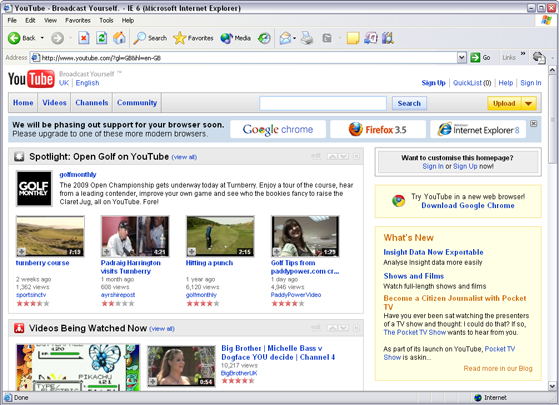As you can read in the following message,
We will be phasing out our support for your browser soon
it seems that Google will be phasing out support for what was six years ago the most widely used browser, Internet Explorer. While the use of IE6 seems to decrease steadily in Western countries, it is still widely used in Asia (particularly in China and Korea, where browser share reach about 60% of the market for IE6).
Two consequences can be imagined in Korea. First of all, this would involve updating computer software (browsers, but also operating systems) for a tremendous number of machines. Furthermore, it would require a great deal of effort from developers to update existing web applications and make them work with recent browsers.
Fortunately, if this tendency is confirmed, it may lead to great advancements in terms of usability, cross-browser compatibility, and democratization of cutting-edge technologies (HTML5, ECMAScript4). It should also considerably alleviate website design challenges, focusing more on accessibility and graphics rather than Javascript and CSS hacks.
On the other hand, unless governments and organizations awake and start to promote the use of newer, standard-compliant browsers, repercussons could be dramatic. It could lead to the ostracization of the Asian internet, since not only would newer websites become incompatible with IE6, but the lack of consistent updating would allow computer systems to become particularly vulnerable to hacking or virus attacks.











